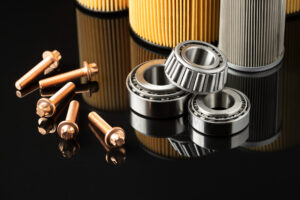Affordability may be the most important factor to consider when deciding what car to buy
– Lebogang Gaoaketse, WesBank Head of Marketing and Communication
As a first time buyer, it is easy to get overwhelmed, or even carried away, with the reality of purchasing your first car. You may get the feeling that everything is aligning in your life to get your first set of wheels, but there are many things to consider when making this budget-impacting purchasing decision.
One of these could be your lack of credit score if you have only recently entered the job market. Under normal circumstances, this could be a negative consideration when trying to raise finance to buy your chosen car. However, thanks to finance offerings such as WesBank Graduate Finance, this is one less thing to worry about. The application process to check affordability and get approval for a vehicle finance deal can be done online, and it only takes a few minutes.

”Affordability may be the most important factor to consider when deciding what car to buy, but there is another important decision to make. This is deciding whether to get a new or a pre-owned car. While your dream car may be the latest flashy model on the showroom floor, with all the added extras including cool rims and a high-end sound system, the reality is that you need to buy within your budget,” says Lebogang Gaoaketse, WesBank Head of Marketing and Communication.
“That might just be the pre-owned car next to your dream car that is in great condition, has low mileage on the clock and, most importantly, is affordable. It is a significant choice for you to make because each option carries its own set of considerations. Talk about adulting, right?”

You also need to remember that there are more costs involved when buying your first car than the monthly repayments. While the right time to buy your first car could be now, affordability is key. Make sure you take into account all the expenses that come with independent mobility and act responsibly when making the financial commitment.
If you are considering buying a brand new car, budget permitting, WesBank advises that you place the most emphasis on getting value for your money. This includes not compromising on the car’s safety features such as ABS brakes and airbags, and what your needs are with regards to space and add-on extras. You need to also make sure that you understand the details of your contract. Buying your car from a licensed and WesBank approved dealership is recommended.
Nothing beats the smell of a new car, except perhaps the smell of a perfectly valeted pre-owned car that fits your budget more comfortably
– Lebogang Gaoaketse, WesBank Head of Marketing and Communication

In the case of a new or pre-owned vehicle purchased through a reputable dealer, you are likely to be offered an extended motor plan, service plan or warranty as part of the purchase agreement. These are insurance-related products and are aimed at protecting you from unforeseen costs down the line such as a vehicle breaking down.
It is advisable to consider including plans such as these, budget permitting, that offer a little extra peace of mind further down the road. These options can take some burden off your wallet when the time comes to pay for the car’s services and general vehicle maintenance after any standard maintenance plans and/or warranties expire.

Remember those other recurring financial obligations besides the monthly instalment we mentioned earlier? Fuel is an ongoing cost when driving around town, so consider a car that is fuel efficient. Taking out comprehensive insurance cover is a non-negotiable, and premiums can vary depending on the car you choose, so do some research with your insurance provider ahead of signing. You may also consider installing a vehicle tracking device as an additional security measure and, although this comes with a monthly payment, it could also mean a reduction in insurance premiums. All these costs need to be managed and included in your budget.
How you tackle this big decision-making process will determine the overall experience of buying and owning your very first set of wheels
– – LEBOGANG GAOAKETSE, WESBANK HEAD OF MARKETING AND COMMUNICATION

If a pre-owned car in good condition is what you decide on, WesBank offers the following advice:
- Firstly, check the service history of the car. Pre-owned cars should have a full-service history (FSH) that will inform you whether the previous owner took the car to a licensed service centre, whether the car was serviced timeously and if the FSH does indeed reflect the real condition of the car. A car without a recorded service history may come at a reduced cost, and seem like a great deal, but can be risky in the long run.
- Secondly, the Vehicle Identity Number (VIN) serves as the fingerprint of the car. The VIN found on the license disc must match the one on the car (usually stamped where the windscreen meets the dashboard). It’s a lengthy number but inspect it carefully and, and if anything doesn’t match, enquire with the dealer as to why. Even more advisable is to walk away.
- Thirdly, it is important to find out if the car has been involved in a major accident. The effects of a major accident could result in mechanical damage to the vehicle that could present costly problems down the line. WesBank recommends that you ask someone knowledgeable, such as a trusted mechanic, to inspect your chosen vehicle before you sign for it on the dotted line.
- Fourthly, a test drive is the only way to get a solid impression of a car’s driving dynamics, features and comfort levels. Don’t just drive around the block: take the time to check the comfort and size of the car and how it handles on a variety of roads. Listen carefully for any strange noises and if anything doesn’t seem right ask the salesperson if they would be willing to investigate and repair any issues. If you’re unhappy with anything, make it known and feel free to move on if you’re uncomfortable. Test drives do not come with any commitment to purchase. Finally, don’t feel pressured or obligated to buy the car the same day – take time to think it over.

“Nothing beats the smell of a new car, except perhaps the smell of a perfectly valeted pre-owned car that fits your budget more comfortably. Ultimately, the choice is yours. Either way, take your time, do your homework thoroughly and ask as many questions as possible. How you tackle this big decision-making process will determine the overall experience of buying and owning your very first set of wheels,” says Gaoaketse.






